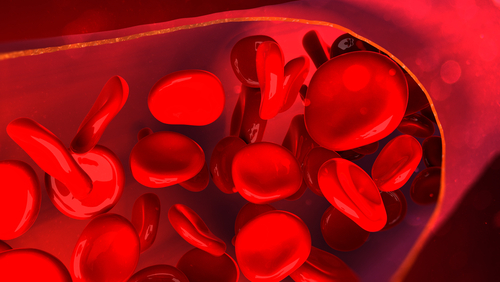Low Doses of Feiba Cut Risk of Relapse After Acute Bleeding Events in Acquired Hemophilia A, Study Says
Written by |

Administering low doses of Feiba, or activated prothrombin complex concentrate (aPCC), as a prophylactic (preventive) treatment after acute bleeding events reduces the risk of relapse in patients with acquired hemophilia A, a study shows.
The study “Low dose of IPCC after the initial treatment in acquired haemophilia A is useful to reduce bleeding relapses: Data from the FAIR registry” was published in Thrombosis Research.
Acquired hemophilia A is an autoimmune condition in which the immune system produces antibodies against the blood clotting factor VIII (FVIII), leading to severe bleedings, mainly in the muscles and skin.
Acute bleeding episodes can be controlled by treatment with bypassing agents such as recombinant activated FVII (rFVIIa), recombinant (artificially produced) porcine FVIII or activated prothrombin complex concentrate (aPCC), a mixture of coagulation factors.
Treatment with bypassing agents is effective in controlling the initial bleeding, but more than 20% of patients relapse an average of 14 days after stopping treatment. Recent studies have suggested that aPCC is an effective alternative to stop bleedings without recurrence.
The FAIR Registry is a retrospective-prospective study that evaluates the efficacy and safety of a prophylactic treatment consisting of low doses of aPCC after an acute bleeding episode to reduce the incidence of relapse in acquired hemophilia A patients.
Researchers collected the data of 56 (31 retrospective and 25 prospective) acquired hemophilia patients, diagnosed at 69.9 years old on average, treated for bleeding episodes in 12 Italian hemophilia centers.
They mainly evaluated the effects of Feiba, an aPCC treatment approved by the FDA for controlling bleeding episodes that was used as a first-line treatment in 82.2% of the cases and was effective in treating 96.4% of the bleeds.
A total of 101 bleeding episodes were reported; 84.1% were spontaneous, 71.3% involved muscles or skin, and 38.6% were considered major bleedings.
Fifteen patients (26.8%) received first-line treatment after a bleeding event and then low doses of Feiba as a short-term prophylactic treatment to reduce the risk of relapsing.
Patients received the prophylactic treatment until the levels of the antibodies that attack FVIII were below 50% of the baseline. The therapy lasted 20.5 days on average with a mean infusion frequency of every 24 hours.
The remaining 41 patients (73.2%) received first-line treatment as the previous groups, but then received no further treatment.
A total of 32 bleeding relapses were reported. Only 9.4% occurred during short-term prophylaxis. A “bleeding relapse” was defined as any bleeding event at any site less than a month after the first episode.
“Short-term prophylaxis with Feiba started immediately after an acute episode resolution was proven to be effective to prevent relapses, and safe,” researchers said.
“Although the costs of treatment initially increased due to the higher consumption of aPCC in the patients treated with short-term prophylaxis, in the long term, these are reduced by the fewer days of hospitalization, the fewer severe events requiring further treatment and by the lower number of [complications],” they said.
Eight patients died during the study, four in each group. None of the deaths was related to treatment with aPCC.
“Randomized controlled trials [are] necessary to define the appropriate dose of aPCC and the appropriate duration of treatment,” researchers said.


